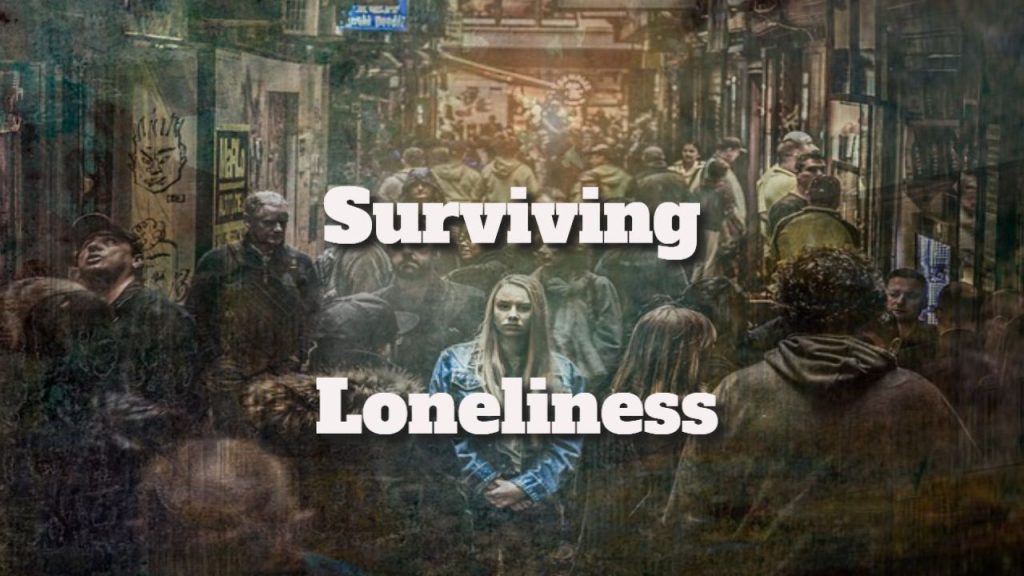Effective Strategies for Overcoming Loneliness and Isolation
Confronting the experience of feeling lonely and isolated can be an overwhelming challenge. Whether you find yourself living alone in a new city or struggling to forge connections with others, it’s crucial to prioritize your mental health and overall well-being. Fortunately, there are numerous practical and effective strategies available that can help you navigate through feelings of loneliness and foster a deeper connection with the world around you. By taking proactive steps, you can transform your experience of isolation into one filled with hope and community.
One of the most significant initial steps in overcoming loneliness is to acknowledge your feelings and seek help. This might involve reaching out to a trusted friend or family member, joining a local support group, or consulting with a mental health professional. It’s essential to remember that loneliness is a common experience shared by many; hence, there is no shame in asking for support when you need it. Taking this courageous step can lead you toward healing and connection.
Focusing on creating meaningful relationships with others is another vital approach. Consider joining a club or community group, volunteering for a cause you care about, or exploring a new hobby. By actively putting yourself out there and meeting new people, you can cultivate a sense of belonging that helps to alleviate feelings of alienation. Building these connections not only enriches your life but also enhances your overall sense of community and well-being.
Deepening Your Understanding of Loneliness
What Does Loneliness Mean?
Loneliness is a complex and subjective experience characterized by a perceived deficit in social connections. This emotional state can arise when there is a significant gap between your desired and actual social interactions. It’s important to recognize that anyone, regardless of their age, gender, or social status, can experience this intricate feeling. Understanding the nuances of loneliness can help you to better address and cope with it, paving the way for healing and connection.
Exploring the Psychological Effects of Loneliness
Experiencing loneliness can significantly impact your emotional and psychological well-being. This state of isolation can weaken your immune system, increasing your susceptibility to chronic illnesses. Additionally, persistent feelings of loneliness may breed sadness, anxiety, and despair, creating a vicious cycle that can be difficult to escape. Understanding these psychological effects can motivate you to take action to improve your situation.
Examining the Social Factors Contributing to Loneliness
Loneliness is not merely an individual issue; it is deeply rooted in societal dynamics. Various factors contribute to this pervasive feeling, including the breakdown of traditional social structures, shifting family dynamics, and the growing prevalence of technology-mediated communication. The stigma surrounding loneliness often prevents individuals from reaching out for help and support, further intensifying feelings of isolation. Recognizing these social dynamics is essential in addressing loneliness collectively.
Ultimately, the experience of loneliness carries complex emotional and physical consequences. If you or someone you know is grappling with social isolation, it is crucial to be aware of the signs and symptoms associated with loneliness and to seek assistance when needed.
Effective Coping Strategies for Loneliness
While loneliness and isolation can be daunting experiences, there are a variety of strategies that can help you manage these feelings effectively. Here are some practical tips designed to enhance your sense of connection and support as you navigate through challenging times.
Harnessing Mindfulness and Self-Compassion
Practicing mindfulness enables you to connect with your internal experiences and remain present in the moment. This technique can be particularly beneficial during episodes of loneliness. Focus on appreciating the present experience and immerse yourself in your surroundings. Additionally, engaging in self-compassion exercises, such as writing positive affirmations or reflecting on your strengths and accomplishments, can bolster your emotional resilience and help combat feelings of isolation.
Expanding Your Social Network for Greater Connection
Building a robust social network can effectively counteract feelings of loneliness and isolation. Start by reaching out to friends and family to make plans for spending quality time together. Another excellent option is to explore joining an engaging organization or club, such as a reading group or a sports team. These social interactions can significantly enhance your sense of belonging and connection to others.
Accessing Professional Support for Loneliness
If you find yourself grappling with persistent feelings of loneliness and isolation, seeking professional help can be a vital step. A therapist or counselor can provide a safe space to explore your emotions and develop effective coping strategies. Moreover, you can consult your primary care physician for referral options that suit your needs.
Keep in mind that experiencing loneliness or feeling alone is a widespread experience, and various coping tools can support you. By practicing mindfulness and self-compassion, building social networks, and seeking professional help, you can foster a greater sense of connection and support in your life.
Engaging in Activities to Alleviate Loneliness
Participating in activities can be an excellent way to combat feelings of loneliness and improve your mental health. Here are some engaging ideas for activities you can explore to uplift your spirits:
Exploring Hobbies and Interests
Pursuing hobbies such as creating art, playing a musical instrument, or diving into a captivating book can fill your time with joy and distraction. Engaging in activities you are passionate about allows you to shift your focus away from loneliness and immerse yourself in something positive and fulfilling. This can significantly enhance your emotional well-being.
Volunteering: A Meaningful Way to Connect
Volunteering provides an excellent opportunity to give back to your community while meeting new people. There are countless volunteer opportunities available, ranging from assisting local charities to participating in community events. Engaging in volunteer work can foster a sense of purpose and connection, helping to combat feelings of isolation.
Incorporating Physical Activity into Your Routine
If you are experiencing feelings of loneliness and isolation, engaging in physical exercise can be incredibly beneficial. Whether you prefer running, practicing yoga, or lifting weights, incorporating regular physical activity into your routine can improve your physical health, elevate your mood, and alleviate stress. Remember that exercise is not just about physical well-being; it plays a vital role in enhancing your mental health as well.
Participating in various activities is a proactive approach to dealing with loneliness and isolation. If you find yourself struggling with your mental health, it’s essential to seek treatment and support. Don’t hesitate to reach out to a friend, family member, or mental health professional for assistance.
Finding Online Support and Communities
While loneliness can be challenging to navigate, online support groups and communities can serve as invaluable resources for those feeling isolated.
Identifying Supportive Online Groups
Many online communities cater to diverse interests and needs. Platforms like Facebook, Reddit, and Discord offer spaces where you can find groups suited to your preferences. It’s essential to identify a group that fosters a friendly and supportive atmosphere. Review the group’s rules and guidelines to understand how members interact, and if you feel comfortable, introduce yourself and start engaging with the community.
Nurturing Online Relationships
Building and maintaining online relationships can differ significantly from in-person connections. It’s crucial to be mindful of your communication style and how you engage with others in virtual spaces. Scheduling regular check-ins with online friends is one effective way to sustain these relationships. Additionally, respecting others’ boundaries and privacy is vital. Keep track of your time online and avoid sharing personal information unless necessary.
Establishing meaningful online connections can help you create a supportive network that assists you in navigating challenging moments.
Implementing Long-Term Lifestyle Changes for Emotional Wellness
Taking care of your physical health is paramount in enhancing your overall well-being. Ensure you are getting adequate sleep, maintaining a nutritious diet, and engaging in regular exercise. These practices will positively impact both your emotional and physical health, contributing to a more balanced life.
Your social life is another critical component of your lifestyle. Seek opportunities to engage in activities that interest you while also involving others. Whether it’s joining a club, picking up a new hobby, or volunteering for a meaningful cause, these experiences can facilitate interactions with new people and help you establish significant connections.
Pursuing Meaningful Connections with Others
In addition to making lifestyle adjustments, actively seeking meaningful interactions with others is essential. This process may present challenges, but there are several steps you can take to simplify it.
Firstly, remain open to meeting new individuals. Attend social gatherings, strike up conversations with strangers, and join online communities that align with your interests. Secondly, be prepared to invest effort into establishing and nurturing relationships. This includes being an attentive listener, showing genuine interest in others, and being a reliable and trustworthy friend.
Lastly, if you find yourself struggling with feelings of loneliness and isolation, do not hesitate to seek professional help. A therapist or counselor can provide valuable guidance as you work through these challenges and develop the skills needed to improve your social connections.
The post Surviving Loneliness and Feeling Isolated appeared first on Survival Avenue.
The post Surviving Loneliness and Feeling Isolated appeared first on https://gqcentral.co.uk
The Article Surviving Loneliness and Feeling Isolated First Appeared ON
: https://ad4sc.com
The Article Surviving Loneliness and Feeling Isolated was found on https://limitsofstrategy.com


Comments are closed